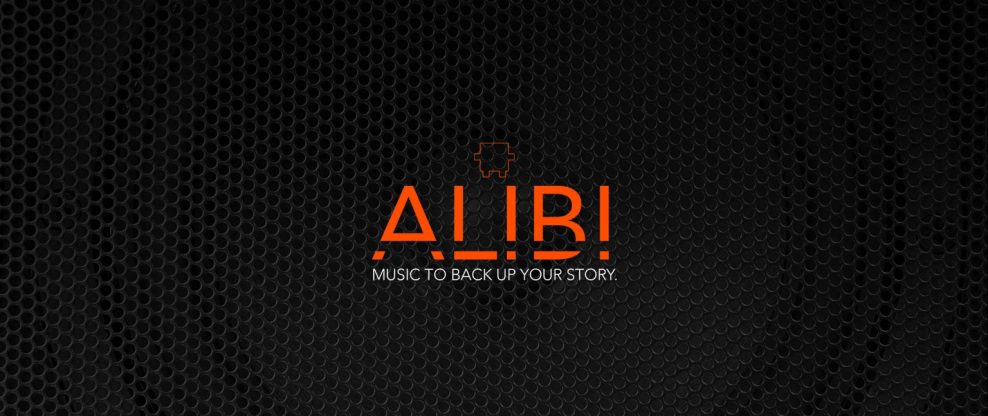(Hypebot) — In this article, Jonathan Parks of ALIBI explains how his company’s music production library suddenly became inundated with searches after one particularly successful sync placement, and how that attention drove the company get its tracks published on streaming services.
Guest post by Jonathan Parks
The first time it happened, we noticed an abnormal surge of traffic on our site. It seemed to come out of nowhere, and suddenly hordes of people were searching ALIBI’s music production library for a particular track. They weren’t our usual suspects of clientele from TV networks, studios, trailer houses or ad agencies. They were everyday people on a mission. They had to have it, and we had no idea why.
What IT turned out to be was a track called “Gonna Be a Good Day” that had been licensed by Starz and used in a trailer teasing the hit TV series “Outlander,” a pop culture phenomenon. Trying to make sense of the traffic spike, we Googled ourselves and there it was… a TVGuide.com article identifying the song for fans.
“We know it was hard to focus on anything but Jamie (Sam Heughan) and Claire (Caitriona Balfe) undressing each other, but on the third or fourth re-watch the song playing over the teaser is inescapable,” wrote reporter Megan Vick.
And fans couldn’t get enough. For months, we fielded requests from people wanting to download the song or simply know more about it.
It happened again when an ALIBI track, “Place that I Call Home,” was licensed for use in the “Mr. Pickles” Season 3 finale bar scene. Another unexplained spike in traffic had turned us to Google where we found fan postings of the scene loaded with comments referencing the song.
“It would be money if someone could find the song from this clip,” posted one.
“Can’t wait till the song is released,” wrote another.
They were rewarded when someone finally figured it out and connected the track to ALIBI. Though we still have no idea how they actually found us (we weren’t Shazamable), they did, and the requests started piling again.
While music tracks associated with pop culture franchises seem to garner the biggest response, we’ve had people outreach us about music licensed for advertising as well. A trailer-esque commercial for OMEGA watches that used the ALIBI track “Love Like a Melody” spawned another burst in traffic as consumers endeavored to find the music. And, most recently, the track behind a stirring, COVID-19-themed Persil commercial inspired consumers throughout the United Kingdom to find the artist whose ethereal “Running Free” lyrics had moved them.
“Persil’s latest TV ad has proven to be rather pertinent given the current state of the world but what’s the song used in the advert?” reporter Paul Fogarty asked before revealing he had identified the sought-out new artist, Tasha Robertson, whom ALIBI had commissioned, along with the track’s composer Adam Bowers.
After experiencing these and other similar such reactions from the general public, the message became clear to us: people are listening and emotionally connecting with production music, whether it be used in a trailer, TV show or commercial, and that’s pretty cool.
It was also clear that we needed to do something to make ALIBI’s music available to consumers seeking it out. Not only would that give fans a place to listen to the music they like, but it would also allow us to keep our website focused on clients by reducing the time spent responding to general consumer requests.
We decided to publish ALIBI’s production music tracks across top streaming services, which, in theory, was an easy solution… in practice, not so much. See, our music was never designed to be listened to in that way. ALIBI’s music tracks feature edit points or blank spaces designed especially for film editors to cut in and out of. We give our clients different intro and stop options, as well as alternative endings, so they can easily decide and choose their own track ending in the audio file.
Adapting an editor-focused catalog built with so much specification in structures meant we had to go back and make “radio edits” to each track that would enable us to release it on a streaming service.
Two audio editors took on a project that involved a few months’ worth of work just to create the new audio files, and that was the easy part. We then had to match all the data accurately to get it into our system–pairing data from the newly created radio edit tracks with the original parent tracks and then organizing it all in the ALIBI library.
Once that was done, we partnered with music distribution service Dashgo to release our radio-edited catalog for streaming, with ALIBI’s music now available on most major streaming services. Already, to our surprise, we have some 14,000 monthly listeners after just a few months with zero promotion.
Fans aren’t the only ones happy. Our clients are benefitting from the strengthened engagement as consumers discover a new way to interact with their products or content.
For instance, ALIBI production music was recently used to score Valve’s entire Dota 2 documentary True Sight: The International 2019 Finals, a huge draw for e-sports fans around the world. Our streaming release of these music tracks gives clients like Valve the ability to create soundtracks for their programs that can be marketed as another way to enjoy that brand experience.
Bottom line: People are paying attention, and a good soundtrack can be vital to connecting consumers with whatever it is you’re making. If they’re asking for it, it’s working, so why not give an easier way to keep engaging?

































































